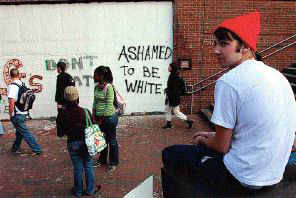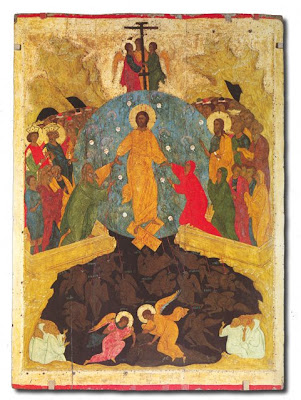People don’t understand my interest in and stance on race issues (I’m white, by the way). They tell me that it’s the 21st century, that the 1960s were a long time ago. They tell me race isn’t as much of an issue anymore. When Obama was elected, I wanted to talk about the significance of his racial background but was told by several people that it didn’t matter that he was black. True, his ethnicity has nothing to do with how well he’ll lead the country, but I couldn’t help but notice that everyone who said this to me was white. My black friends knew it mattered that they had a black president.
You can tell me that race isn’t an issue, even that Obama’s victory ushered in a new era in race relations, but I won’t believe you. After the election, students at N.C. State wrote graffiti on a wall on campus with such hateful messages as “Hang Obama by a noose” and “Shoot that n----- in the head.” And this at a respected institution of higher learning. What were you saying about race not being an issue anymore?
Now it’s time to relate all of this to Christianity. What is the Church supposed to do about the lingering racism that festers in our nation? One student’s response to the graffiti at NSCU offered a partial answer: when the wall had been whitewashed, he wrote, “Ashamed to be white.” Malcolm X and Carmichael both believed that whites admitting the sin of racism was the first step to the emancipation of blacks—and, as Cone would add, the emancipation of whites, for “the man who enslaves another enslaves himself.” Most churches confess corporate sin on at least a weekly basis. How do we confess the inherited sin of racism?
One answer comes from Malcolm Boyd in his book Are You Running With Me, Jesus? “During a Freedom Ride in the Deep South in 1961, one of my fellow Episcopalian priests said: ‘It seems to me this is really a kind of prayer—a kind of corporate confession of sin.’” This aligns with James H. Cone’s insistence that Christ’s very being is tied up with his identification with the oppressed peoples of the world—and that the Church must enter into a radical identification with that oppressed Christ and our neighbors with whom he shares his person.
The first step towards reconciliation is confession. The off-Broadway hit Avenue Q, although crass at times (or half the time) makes a good point in its song “Everyone’s a Little Bit Racist.” If we insist that race is not an issue, we only prop up old systems of injustice. The Church must help confront Americans with the sin of racism. And the Church must provide a model for radical identification with the oppressed. To do otherwise is to deny Christ.




I have always been wary of children's sermons. At my old church, we had problems with a children's minister who managed to show an abhorrent level of insensitivity towards a pair of girls whose mother died young. Since that string of incidents, no church I've been a part of has had children's sermons. However, I had an interesting experience a few months ago that made me think.
While visiting a friend, I attended her church, a relatively small Methodist congregation. They have a children's sermon every Sunday and apparently everyone in the church absolutely loves delivering the children's sermon—there's a long waiting list just to be able to do it. The particular Sunday I was present, I listened to a late-middle-aged woman deliver a completely incoherent children's sermon that focused solely on the Canada goose.
Jesus was never mentioned. God played no part in her story. Even the environmental tack I think she was trying to take was weakly developed and unclear. Those kids probably walked away having no idea what was said.
But you know what? Any church in America should get down on its knees and thank God for a congregation like that, where the adults are literally lining up to be engaged with the children and youth of the church. The same can be said of a pastor who wants to be a tangible presence in the life of the children there and not just a "pontificating" figure in the pulpit.
Today I see many large, well-established churches suffer for want of youth volunteers and children's Sunday School teachers. If a children's sermon can discourage the sort of age-class silos that are shored up around the children and youth in our churches today, then I will happily listen to a children's sermon on geese if it shows that the adults are taking a genuine interest in the younger generation of believers.